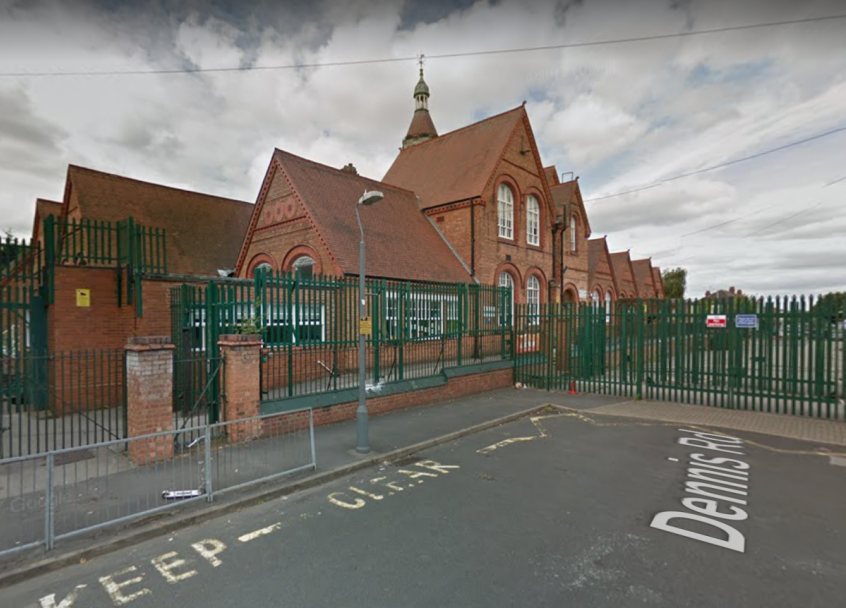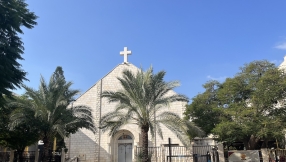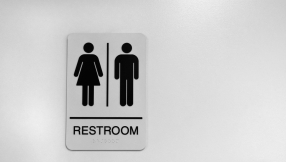
The head teacher of a school where parents have protested LGBT awareness lessons says she is bracing herself for mass arrests after the High Court moved to halt the protests.
The High Court order bans protests from taking place outside the gates of Anderton Park Primary School in Birmingham - the first in the UK to have a legally enforceable exclusion zone.
Birmingham City Council said it had applied for the injunction "only after careful consideration and in the light of increasing fears for the safety and wellbeing of the staff, children and parents of the school when they come back from their half-term break".
It added: "This is particularly so after the serious escalation of the protests in the week before half-term - including the attendance of very large numbers of people who have no children at the school, many of whom are not from the city."
Head teacher Sarah Hewitt-Clarkson, who says she has been subjected to verbal abuse over the LGBT lessons, told The Times that the police should make arrests if the order is breached.
"Now the judge has granted the power of arrest, mass arrests are a possibility," she said.
"Police are very keen not to arrest lots of people outside a primary school but they will have to work through that."
Protester Shakeel Afsar was seen in a video on social media vowing to continue the protests, despite the risk of arrest.
"Parents, don't be disheartened by this . . . we will carry on moving forth until we bring change," he said.
Education secretary Damian Hinds, who has been accused of not doing enough to stop the protests, said he welcomed the High Court's decision to grant the injunction.
"It is not right to protest in front of schools - it is frightening to children and disrespectful to hard working teachers," he said.
"This will allow children to return to school and parents to continue peaceful and constructive discussions with staff.
"I support and trust head teachers to make decisions in the interests of their pupils - parents should share their views and concerns, and schools should listen.
"However, what is taught and how is ultimately a decision for schools. Consultation does not mean parents have a veto on curriculum content.
"There is no reason why teaching children about the society that we live in and the different types of loving, healthy relationships that exist cannot be done in a way that respects everyone."
Catholic journalist Caroline Farrow said that while she felt "conflicted" about the protests, she shared the concerns of the parents and defended their right to decide what their children should learn about gender and sexuality, and when.
"Many parents massively resent having to talk to children far earlier than they would prefer, about sex, gender and sexuality, thanks to it being forced on them in school. The state needs to stop trying to interfere in parenting decisions and choices," she said on Twitter.
"There is also a notable absence of trust and good-will directed at parents. Not wanting young children to receive the full gamut of rainbow-wash doesn't mean they are going to turn out hateful, bigoted or misinformed."
Relationships and sex education lessons that cover LGBT relationships will become compulsory in schools from September 2020.
The lessons have been defended by Ofsted chief Amanda Spielman, who has called on parents with objections to engage in dialogue instead of staging protests.













